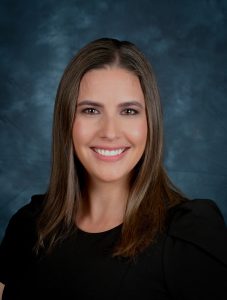
How to Recruit and Retain Latino Attorneys with HLAI President Andrea Belard
| Diversity, Mentoring | October 14, 2021
Each year, National Hispanic Heritage Month honors the cultures and contributions of Hispanic and Latino Americans and celebrates their influence on the history, culture, and achievements of the U.S.
We spoke with Andrea Belard, president of the Hispanic Lawyers Association of Illinois (HLAI), about creating a sense of belonging in the legal profession, how law firms can better recruit and retain Latino lawyers, and how allies can help amplify the voices of Latino attorneys in Illinois.
According to the 2021 ABA National Lawyer Population Survey, 4.8% of all lawyers are Hispanic, up just one percentage point from 3.9% a decade earlier. The U.S. population is 18.5% Hispanic. Why do you think the legal profession has been so slow to diversify?
Three things come to mind immediately: access to opportunities, lack of representation, and, like it or not, financial concerns.
Unfortunately, irrespective of the growth in our community over the past decade, the data shows Latino students are still lacking in opportunities for academic attainment, specifically at the collegiate level.
To attend law school, you need a four-year bachelor’s degree and to take the LSAT, all before you try to figure out if you can even afford to pay for it. For most Latino families this is a luxury they cannot undertake, so then comes the major decision of incurring debt or just abandoning the idea of law school and joining the workforce.
Add to that the damage the pandemic has had on the economy and we have a recipe for disaster in our numbers.
We know that Latinos and other marginalized communities have been disproportionately affected by the pandemic and I wouldn’t be surprised if we see a major regression in the gains we’ve made through the decades worth of work toward more inclusion and representation in the profession.
Do you think Latino lawyers feel a sense of belonging in the legal profession?
My general answer would be no, but, of course, it doesn’t apply to everyone. A sense of belonging starts years before the person becomes a lawyer and goes back to their opportunities beginning in high school, with students believing they can achieve something.
We’ve heard so many stories of students being told by their counselors in high school and college that they’re not meant to be a lawyer, or they couldn’t pass the LSAT, or they couldn’t afford law school and they should try to be “X” instead, with “X” being whatever you wish to fill in the blank with as long as it’s not a lawyer or a doctor.
The perception that Latino youth aren’t capable of becoming their best selves is a societal problem that unfortunately is outside of our control. The change needs to be systemic, and that’s why representation matters.
TO CONTINUE READING THIS ARTICLE VISIT THE 2CIVILITY WEBSITE HERE
